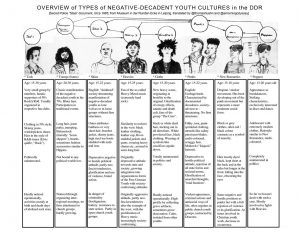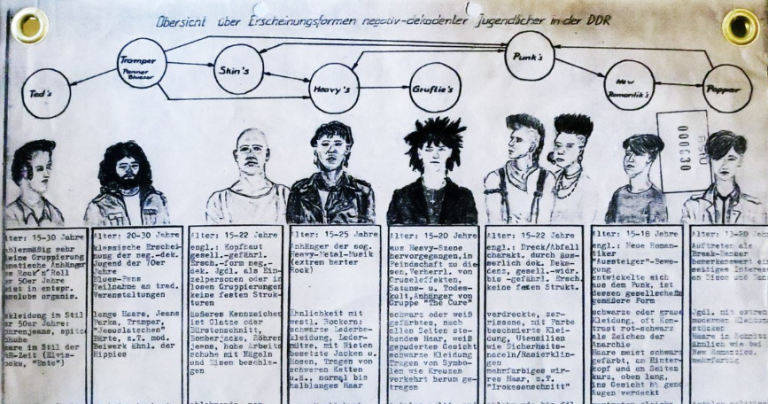Ask Germans who lived under the German Democratic Republic what they feared most in those days, and they’ll likely say the agents of the Ministry for State Security, best known as the Stasi. Ask those same Germans what they laughed at most in those days, and they may well give the same answer. As one of the most thoroughly repressive secret police forces in human history, the Stasi kept a close eye and a tight grip on East German society: as one oft-told joke goes, “Why do Stasi officers make such good taxi drivers? You get in the car and they already know your name and where you live.” But this fearsome vigilance went hand-in-hand with technological limitation as well as plain ineptitude: “How can you tell that the Stasi has bugged your apartment?” another joke asks. “There’s a new cabinet in it and a trailer with a generator in the street.”
When the Stasi turned this kind of crude but intense scrutiny to certain aspects of life, the results almost satirized themselves. Take, for instance, this circa-1985 internal guide used to identify the “types of negative decadent youth cultures in the German Democratic Republic,” posted on Twitter by musician and writer S. Alexander Reed and later translated into English by a few of his followers.

Turkish President Erdogan accepts resignation of son-in-law Finance Minister
Video shows Russian military helicopter in flames in Armenia
The fans of “extremely hard rock” known as “Heavies” once held a “deprecative attitude towards state and society,” but seemed at the time to become “increasingly society-conforming.” Other youth cultures considered decadent by the Stasi bore labels that might still sound familiar across the world. The “Goths,” a “satanic and death cult,” are noted for their “glorification of creepy effects” and for being “fans of the group The Cure.” Though they may have been “hardly noticed operationally,” the “punks” presented a more clear and present threat, what with their “deprecative to hostile political attitude, rejection of all state forms and societal norms,” “anarchist thoughts,” and belief in “total freedom”.
Read more: Open Culture
Ask me anything
Explore related questions





